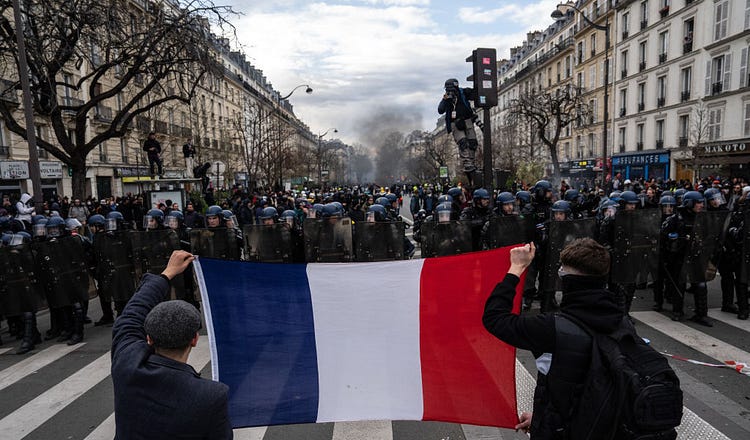La République’s Last, Best Hope

Protesters rally against pension reforms. (Photo by Carl Court/Getty Images)
The French people can save France.
231
I live in a country that has to deploy its army to defend the schools of some citizens, who are Jewish, from potential attacks by other citizens, who are antisemites.
I live in a country that has sacrificed the idea of the common good while fanning the flames of sectarian conflict—a country where communities live side by side, yet alongside one another, …
Continue Reading The Free Press
To support our journalism, and unlock all of our investigative stories and provocative commentary about the world as it actually is, subscribe below.
$8.33/month
Billed as $100 yearly
$10/month
Billed as $10 monthly
Already have an account?
Sign In

